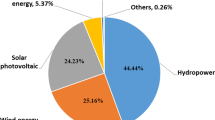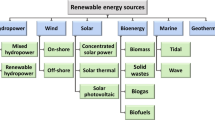Abstract
To incentivize innovation or green technologies, governments use various economic instruments. Resource taxes and effluent taxes are typical Pigovian taxes used for water environmental protection. In this paper, a game model is developed to systematically compare water and effluent taxes and to discuss the impact on three issues: business performance, inducing technological change (ITC) and water environmental protection (water conservation and pollutant reduction). In the model, local governments levy tax policies. In response, growers select technologies based on the profit maximization principle, which in turn determines total water consumption, production quantities and product prices. By comparing the corresponding effects on water savings, reduced effluent volume and economic costs, this analysis reveals the different properties of these two types of taxes. First, neither tax necessarily motivates growers to choose innovative technologies. Both taxes have special conditions that incentivize new technologies. The effluent tax depends on the tax rate, while the resource tax also depends on the fixed cost of the new technology and the difference in pollutant density in the effluent of the two planters. Second, in terms of water protection, the water tax has advantages in terms of both water conservation and pollutant reduction. Third, in terms of operating performance, there is a threshold for the improvement in profits from both taxes. This threshold increases with the efficiency of the new technology.

Similar content being viewed by others
References
Adam Jaffe B, Newell RG, Stavins RN (2002) Environmental policy and technological change. Environ Resource Econ 22(1–2):41–70
Bongaerts JC, Kraemer A (1989) Permits and effluent charges in the water pollution control policies of France, West Germany and the Netherlands. Environ Monit Assess 12(2):127–147. https://doi.org/10.1007/BF00394183
Caswell M, Lichtenberg E, Zilberman D (1990) The effects of pricing policies on water conservation and drainage. Am J Agric Econ 72(4):883–890. https://doi.org/10.2307/1242620
Fischer C, Parry I, Pizer WA (2003) Instrument choice for environmental protection when technological innovation is endogenous. J Environ Econ Manag 45(3):523–545. https://doi.org/10.1016/S0095-0696(03)00002-0
Höglund L (1999) Household demand for water in Sweden with implications of a potential tax on water use. Water Resour Res 35(12):3853–3864. https://doi.org/10.1029/1999WR900219
Hotelling H (1954) The economics of exhaustible resources. In: Gopalakrishnan C (ed) Classic papers in natural resource economics. Palgrave Macmillan, London
Jung C, Krutilla K, Boyd R (1996) Incentives for advanced pollution abatement technology at the industry level: an evaluation of policy alternatives. J Environ Econ Manag 30(1):95–111. https://doi.org/10.1006/jeem.1996.0007
Kammerer D (2009) The effects of customer benefit and regulation on environmental product innovation. Ecol Econ 68(8–9):2285–2295. https://doi.org/10.1016/j.ecolecon.2009.02.016
Kopylova GN, Boldina SV, Serafimova YK (2022) Earthquake precursors in the ionic and gas composition of groundwater: a review of world data. Geochem Int 60(10):928–946. https://doi.org/10.1134/S0016702922100056
Krass D, Nedorezov T, Ovchinnikov A (2013) Environmental taxes and the choice of green technology. Prod Oper Manag 22(5):1035–1055. https://doi.org/10.1111/poms.12023
Liu C, Shao M, Yi W, Hou X (2012) Comprehensive roadmap to 2050 for water science & technology development. Water Sci Technol China Roadmap 2050 2012:53–58. https://doi.org/10.1007/978-3-642-23632-7_4
Magat WA (1978) Pollution control and technological advance: a dynamic model of the firm. J Environ Econ Manag 5(1):1–25. https://doi.org/10.1016/0095-0696(78)90002-5
Marin A (1991) Firm incentives to promote technological change in pollution control: comment. J Environ Econ Manag 21(3):297–300. https://doi.org/10.1016/0095-0696(91)90033-F
Milliman SR, Prince R (1989) Firm incentives to promote technological change in pollution control. J Environ Econ Manag 22(3):247–265. https://doi.org/10.1016/0095-0696(89)90019-3
Milliman SR, Prince R (1992) Firm incentives to promote technological change in pollution control: Reply. J Environ Econ Manag 22(3):292–296. https://doi.org/10.1016/0095-0696(92)90035-U
Möller-Gulland J, Lago M, Mcglade K, Anzaldua G (2015) Effluent tax in Germany. Use of economic instruments in water policy: insights from international experience. Springer, pp 21–38
Montero JP (2002) Permits, standards, and technology innovation. J Environ Econ Manag 44(1):23–44. https://doi.org/10.1006/jeem.2001.1194
Mushtaq S, Khan S, Dawe D, Hanjra MA, Hafeez M, Asghar MN (2008) Evaluating the impact of Tax-for-Fee reform (Fei Gai Shui) on water resources and agriculture production in the Zhanghe irrigation system. China Food Policy 33(6):576–586. https://doi.org/10.1016/j.foodpol.2008.04.004
Ouyang R, Mu E, Yu Y, Chen Y, Hu J, Tong H et al (2022) Assessing the effectiveness and function of the water resources tax policy pilot in China. Environ Dev Sustain. https://doi.org/10.1007/s10668-022-02667-y
Sun HY, Zhang XY, Chen SY, Shao LW, Dong BF (2011) Analysis of field water consumption, its pattern, impact and driving factors. Chin J Eco-Agric 19(5):1032–1038. https://doi.org/10.3724/SP.J.1011.2011.01032
Sun BW, Fu XY, Ren JL, Zhao QY, Fu SX, Zhang N (2019) Research on the blue dividend effect of environmental regulation. China Environ Sci 39(08):3518–3529
Tortajada C, Joshi YK (2013) Water demand management in Singapore: involving the public. Water Resour Manag 27(8):2729–2746. https://doi.org/10.1007/s11269-013-0312-5
Zabel TF, Andrews K, Rees Y (2007) The use of economic instruments for water management in selected EU member countries. Water Environ J 12(4):268–272. https://doi.org/10.1111/j.1747-6593.1998.tb00184.x
Acknowledgements
This paper was funded by the Special research project on Ideological and political theory course in Colleges and universities funded by National Social Science Foundation (21VSZ077), National Natural Science Foundation of PRC (72104057), Natural Science Foundation of Guangdong Province of China (2021A1515011929) and the Project of Philosophy and Social Sciences Research in Guangdong (GD20YYJ01). All authors declare that there are no conflicts of interest.
Funding
Special research project on Ideological and political theory course in Colleges and universities funded by National Social Science Foundation, 21VSZ077, Zi-rui Chen, the Project of Philosophy and Social Sciences Research in Guangdong, GD20YYJ01, Zi-rui Chen, Natural Science Foundation of Guangdong Province, 2021A1515011929, Jia-yi Guo, National Natural Science Foundation of China, 72104057, Jia-yi Guo.
Author information
Authors and Affiliations
Corresponding author
Ethics declarations
Conflict of interest
The authors declare that they have no conflict of interest.
Consent to participate
Consent to participate was not relevant to this research.
Consent to publish
The authors agree to publication in this journal. The authors confirm that the work described has not been previously published (except in the form of an abstract or as part of a published lecture, review, or thesis), that it is not under consideration for publication elsewhere, that its publication has been approved by all co-authors, and that its publication has been approved (tacitly or explicitly) by the responsible authorities at the institution where the work was carried out.
Ethical approval
Ethical approval was not required for this research.
Rights and permissions
Springer Nature or its licensor (e.g. a society or other partner) holds exclusive rights to this article under a publishing agreement with the author(s) or other rightsholder(s); author self-archiving of the accepted manuscript version of this article is solely governed by the terms of such publishing agreement and applicable law.
About this article
Cite this article
Chen, Zr., Guo, Jy. & Nie, Py. Tax scheme for agricultural technology innovation incentive. Paddy Water Environ 21, 343–352 (2023). https://doi.org/10.1007/s10333-023-00932-y
Received:
Revised:
Accepted:
Published:
Issue Date:
DOI: https://doi.org/10.1007/s10333-023-00932-y




